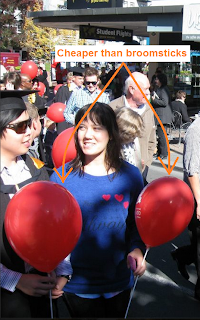Series Review:
Nikita
Tech-heavy spy drama at its most intense
---------------------------------------------------------------------------------------------------------------------
by Matthew Ferri
*Vague spoilers
*Vague spoilers
A
rogue agent makes it her mission to take down a secret criminal organisation
she used to work for called Division. Suffice it to say that this isn't the most
original plot; nor is the master-of-all-trades rogue agent herself very
realistically portrayed; and don't get me started on the technology or the
copious amounts of fake deaths. Fortunately, they're all part of the same
thrilling backdrop for a cast of multi-faceted characters, who together display
a spectrum of unwavering ambition. Indeed, every good guy and bad guy has a
goal, an aim, something to live for. And while they aren't all equally
convincing, they transcend the history of Division itself: a metaphor for distinction
and identity. If nothing else, Nikita
has depth.
Division
consists of two separate parties embodied in its bleak colour scheme: black and
white - those giving orders, and those carrying them out. Not knowing any
better, Nikita was once one of those being ordered around. Then, one day, her
eyes opened and she realised she had to get out. You guessed it: she faked her
death, sacrificing her identity; and over the next three years she trained her
partner in crime, Alex, who, from the start of Season One, is granting her
intel as a mole in the heart of Division. You see, there's a third party whom
she and Nikita represent. For a while, they're the only ones; and to everyone
else, their identities - their motives and ambitions - don't exist. They're
grey: a colour not explicitly present in Division, yet a mixture of black and
white, which our heroes have taken onboard, fuelling their vengeful drive to
take down Division and its corrupt leader, Percival "Percy" Rose.
Vengeance
- the one motivation that is its own weakness. Like all Division-trained
operatives, Nikita and Alex were criminals in prison or on death row. As such,
they each have a dark past filled with sacrifice, compromise and regret,
shaping their decisions, feelings and fears in the present. Nikita's most
substantial remorse comes as a major twist towards the end of Season One,
breaking Alex's trust in Nikita and directing it instead to Amanda, Percy's
partner in world domination. Grey: such an unhappy mix of light and dark that
cannot be undone.
But
there are enemies among enemies as well. It soon becomes clear that Percy, the
invincible mastermind and Amanda, the conniving black widow stricken with
insatiable loneliness, are each playing their own little game; and together they
heartlessly destroy whatever fragments of trust they ever shared. Even
Birkhoff, the comic relief tech guy, gets his portion of drama; but he's mainly
there for comedy and smarts; and I must say, he has some pretty good lines.
"Look, Nikki, you're allowed to miss him. But he's coming back. You guys
are... you're meant to be. You're like Bonnie and Clyde ,
except without the last scene."
Nikita: Season One Trailer (2010)
While
the plot itself isn't exactly innovative, its execution is often unpredictable, and its progression incredibly fluid. When
Nikita and Alex aren't enough to stop Division, Michael - Percy's right-hand
man and Nikita's foreseeable boyfriend - joins the good side. Amanda takes
over and Percy is imprisoned; Nikita gradually adds to her team, forming a
generic but very likeable force. As Birkhoff puts it, "Nikita
incorporated, baby. Live and work in the same space. Just like the Enterprise US
The
finale, one in which the creators had to both satisfy viewers with a resolution
and keep the plot open in case the series was renewed again, was aptly done.
Nikita infiltrates Division one final time, reluctantly willing to be taken
down along with it. Yet, in a reversal of roles, Percy and Division become
outnumbered, and Percy himself, if only for a second, gets outsmarted by
Nikita. A second is all it takes; and a very distressed Percy looking pitifully
up into Nikita's face saying, "No..." is the last we see of him. He
meets a timely yet unpredictable end, after which Nikita and co. take Division
by the reins; and with the passing line, "There are still monsters out
there," we get a shot of Amanda standing over a terminal, which reads,
'Game change.' In one of the closing scenes, Alex says, "Here we go?"
to which Nikita replies, "Here we go again." Thus, the snippet of
Amanda could easily be interpreted as a symbol for the endless spawn of enemies
who seek to undo justice, against whom Nikita must perpetually wage war. But the series has indeed been renewed for
another season; so it's instead a clear indication that we'll be seeing more of
the infamous black widow next year. Overall, a brilliant episode, both
satisfying viewers and leaving them with several unanswered questions.
No
show is perfect, though. Nikita occasionally suffers from writer's block: running out
of ways for the good guys to win, so recycling earlier solutions, making the series feel just a tad ripe. However, these instances are few and far between. In
all other cases the entertainment is top notch, sacrificing fundamental
originality and overt realism (neither of which the show aims to achieve anyway) for a
cast of highly developed characters and a steady plot inside an action-packed thrill
ride. I have no doubt that season three will deliver in the same light. The concept of Division is ironic. It's designed to give people a second
chance, to whitewash their black slates. Yet each and every character is a
testament to the reality that no one is black nor white. Nikita and Alex don't forget their
pasts; they learn to accept them, and each other.
4
Stars out of 5




